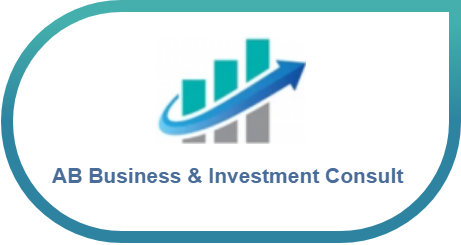Senior officials of the Ministry of Finance are racing to establish a regulatory framework that breathes life into the nascent capital market. The plan is to integrate incentives into an income tax law that has remained unaltered for over two decades. The officials’ latest considerations follow a comprehensive policy recommendation submitted by Brook Taye (PhD), former director general who led the initiative before passing the torch to current director general Hana Tehelku of the Ethiopian Capital Market Authority (ECMA), urging a review of the existing corporate tax structure to stimulate market growth.
Brook Taye (PhD), former director general of ECMA and a former advisor to the Ministry of Finance, conducted a detailed study to identify tax policy alternatives that could kick start the emerging capital market. Recognizing the unfavourable effects of the existing tax regime on investment, ECMA, with support from FSD Africa, analysed how taxation impacts debt and equity instruments.
“The objective is to create an enabling environment in the financial market,” said Estifanos Melkamu, head of the licensing and registration directorate at ECMA.
Estifanos believes establishing an enabling environment and encouraging market development are crucial for the capital market’s successful operation. He cautioned that the existing tax laws are not adequately supportive and could impede the market’s efficient operations.
“Certain regulations could pose challenges in the capital market operation,” he told Fortune.
The Authority has identified several corporate tax provisions that could restrict market development. Tax exemptions have been proposed, including a complete exemption from capital gains tax, bond interest on debt security activities, and share premium on par value, currently taxed at 30pc, 10pc, and 30pc, respectively. The Ministry of Finance is revising articles from the existing income tax laws, considering the need to reassess taxes affecting the capital market.
Abraham Arega, a tax policy advisor at the Ministry, acknowledged the necessity of overhauling the current tax regime, which has overlooked the capital market’s operations. He disclosed that the detailed fiscal consequences are yet to be fully understood due to ongoing studies.
“Revenue implications need to be thoroughly considered,” he told Fortune.
According to Abraham, the Ministry is developing a “broadly applicable, fair, and effective” income tax system to improve the overall tax structure.
“While various suggestions for reviews have been proposed, the potential consequences are under evaluation,” he said, stating that tax reductions are on the table, while no tax exemptions are being considered.
According to individuals following the progress, an overhaul is underway, revising the income tax structure and identifying loopholes needing reform. Research by the U.S. Agency for International Development (USAID) found that tax laws often reflect financial needs or policy goals inconsistent with or neglectful financial market development objectives. Financial market tax laws have often evolved without assessing their impact on these markets.
Ethiopia’s capital market history dates back to the 1960s, when the State Bank of Ethiopia (SBE) initiated share trading. The early initiates were cut short in the aftermath of the 1974 revolution with the military-Marxist regime nationalising private properties. The current form of the ECMA began to take shape in 2021, with a team of 14 experts developing a 10-year implementation plan, outlining a roadmap, including policy reviews, market infrastructure, and capacity building.
The long-awaited capital market is nearing its launch, marking a milestone toward a more diversified financial ecosystem. The initiative began nearly five years ago with a dedicated project team within the National Bank of Ethiopia, supported by the UNDP, and eventually evolved into a federal regulatory body. At a high-profile event hosted by MTA Law Firm at Skylight Hotel last week, the Authority’s former director general and current CEO of the Ethiopian Investment Holdings, Brook, exuded confidence about the upcoming market, slated for operations in November with Ethio telecom offering 10pc of its shares to the public.
Despite the optimism, senior bankers like Worku Lemma observed banks hesitant to participate more proactively in the market as they carefully watch potential gains and risks.
“Banks are widely expected to contribute immensely to the growth of the capital market,” he told Fortune. “But, they’re dragging their feet.”
According to Worku, banks play a crucial role in making the capital market successful, given their resource mobilization and edge in familiarity and expertise with the capital and money markets. He found it puzzling that banks, many of which have already invested in the Ethiopian Securities Exchange (ESX), are indecisive about fully participating.
“Considering their expected role in driving market growth, it’s baffling to see them remain on the sidelines,” he said.
The regulator has yet to see any applicants for investment banking.
A directive the Central Bank issued two months ago has altered the regulatory environment, permitting commercial banks to acquire equity stakes in capital market service providers. The authorities view this as a vital element of Governor Mamo Mihretu’s broader initiative to reform the financial sector, focusing on risk management and capital market development.
Last year, the ESX began its capital-raising activities, and the financial sector showed strong interest. The Exchange exceeded its initial capital subscriptions, raising a subscribed capital of 1.51 billion Br, of which 800 million Br was paid up.
Kassahun Tilahun, CEO of ESX, would like to see tax incentives offered for companies, especially those listed on the Exchange. He is one of the people inside the administration advocating for reviews of the capital gains tax for listed public companies.
“Such incentives will encourage many companies to be listed,” he told Fortune.
Kassahun argued that companies with limited liability might continue to operate under the existing tax regime, potentially incentivising them to consider public listing to benefit from more favourable tax treatment. He believes these incentives would encourage investors to put their equity in listed companies, noting that regional experiences show such initiatives have been adopted elsewhere. State-owned enterprises commanding the heights of the economy, including Ethiopian Shipping & Logistics (ESLE), Ethiopian Insurance Corporation (EIC), and Berhanena Selam Printing Enterprise (BSPE), are preparing for listing alongside the much-publicised listing of the Ethio telecom, under the venerable managment of Frehiwot Tamiru.
Mered B. Fikireyohannes, a finance and investment advisor, see existing tax laws restraining diversification in investment, prodding many to focus solely on property investments.
“The existing laws have to be properly examined,” he said.
He would like to see the tax regime supporting transaction and trading activities, as the capital market encourages the participation of equity investors and provides a conducive environment for investors and operators. He advocated for tax policies that eliminate double taxation of collective investment schemes, where funds are often subject to taxation on capital gains and dividend deductions. Unfavourable tax laws discourage capital formation and share transactions, dissuading many companies from going public.
“Being listed is a huge burden in itself,” he said. “Given the long-term nature of capital market savings and investments, changes to the tax laws could substantially impact the country’s fiscal and economic well-being.”
According to Mered, tax laws should be revised to remove obstacles to the capital market’s development.
“The tax regime has to encourage long-term saving and investments,” he said.
Industry experts caution that without a supportive tax environment, the capital market may struggle to attract participation from domestic and foreign investors. The delicate balance between generating government revenue and stimulating economic growth through investment is at the heart of the ongoing policy discussions.
Source: Capital Market Tax Reform Demands,




